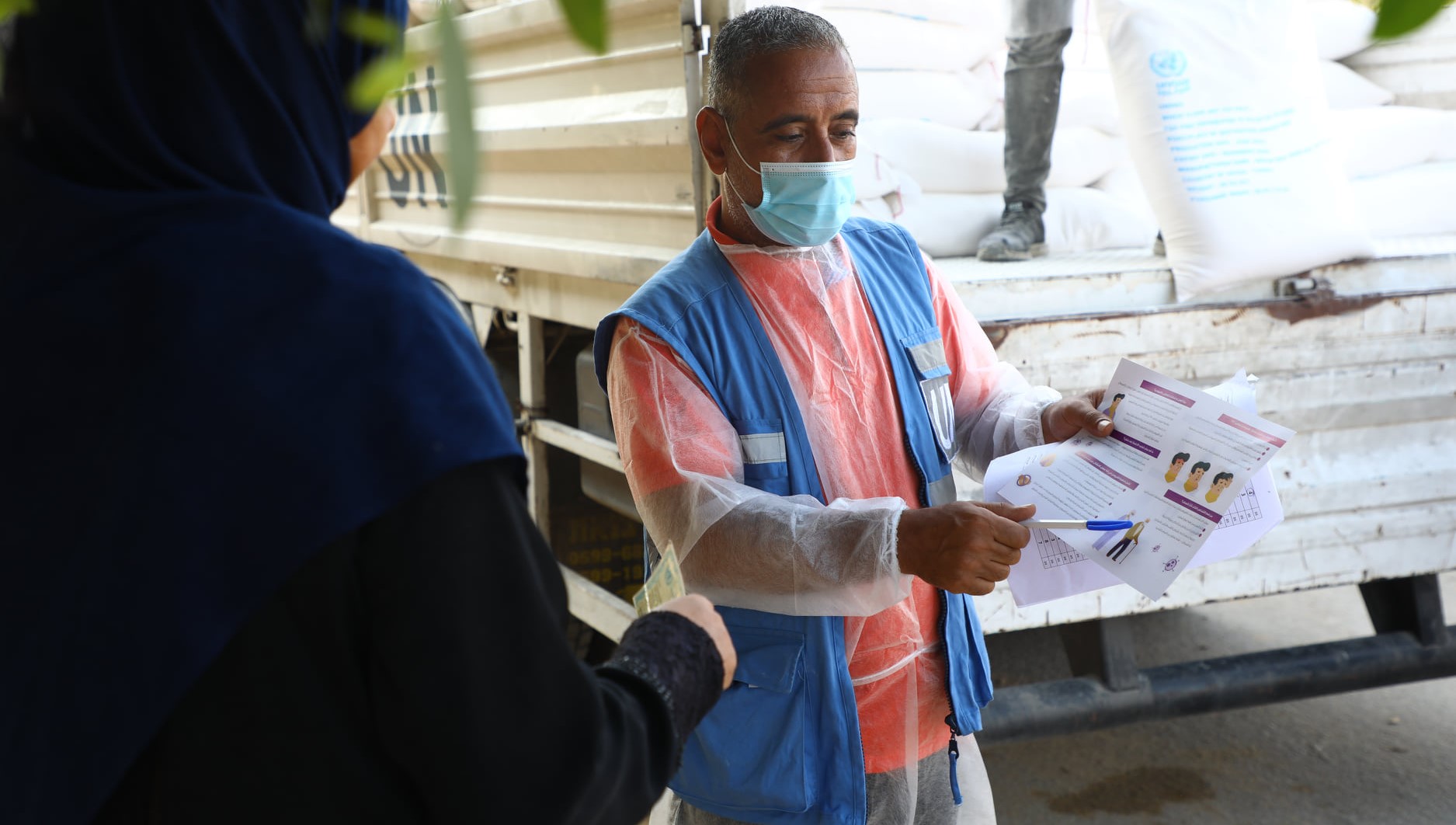Israel permitted Palestinian officials in Ramallah to send the first shipment of 2,000 coronavirus vaccine doses to the blockaded Gaza Strip, on Wednesday, February 17, after earlier in the week the Palestinian Authority accused it of holding up an earlier delivery.
On Monday, February 15, the Palestinian Minister of Health had announced that Israeli occupation authorities were barring the entrance of coronavirus vaccines into the Gaza Strip. In a statement issued by the health minister, Mai Al-Kaila, she held the Israeli occupation authorities responsible for this arbitrary procedure and stressed that it is contrary to all customs, laws, and international agreements.
Al-Kaila noted that the Palestinian Ministry of Health had sent 2,000 doses of the Russian Sputnik-V vaccine to the Gaza Strip, but Israel’s occupation authorities refused to allow the vaccines to enter the coastal enclave. She pointed out that these doses are intended for medical staff working in the intensive care units designated for COVID-19 patients, and the teams working in emergency departments. However, on Wednesday, after the entry of the vaccine into Gaza, an official there suggested that at-risk patients, rather than medical personnel, would be first to receive doses that were sent the same day. “This small batch will be allocated to the most vulnerable people who have had organ transplants, as well as elderly patients with kidney failure,” the health ministry spokesman, Ashraf al-Qidra, said.
Before Israel’s relenting on Wednesday, the minister had stressed that the Palestinian government and Health Ministry are communicating with international organizations to pressure Israel into allowing the entry of vaccines as quickly as possible into the Strip. The global COVID-19 crisis hit the occupied Palestinian territory in early March 2020, when the first cases of the virus were confirmed. According the recent counts, 2133 residents of the West Bank and Gaza died have died since then.
Some Palestinian medical employees have already been vaccinated in the West Bank, but no Gazans have yet been immunized against the coronavirus thus far. Any vaccine campaign in the coastal enclave is likely to face enormous logistical challenges, as Gaza’s health system is ill-equipped to deal with the rollout.
The Knesset held an explosive debate on Monday about whether to allow the transfer of COVID-19 vaccines to Gaza. Knesset Foreign Affairs and Defense Committee chairman Tzvi Hauser (New Hope) argued that, at the very least, Israel should condition its agreement on transferring the vaccines to its receiving information from Gaza about the fate of the two Israelis believed to be in the hands of Hamas, Hisham Al-Sayed and Avera Mengistu. Hamas has refused to divulge any information about them, and has not permitted the Red Cross to visit them, Hauser said.
Hauser and MK Michal Cotler-Wunsh (Blue & White) objected to the move, claiming the vaccines “will end up in the hands of Hamas leaders rather than medical teams.” Joint List MKs Ofer Cassif (Hadash) and Ahmad Tibi (Ta’al) — who attended the discussion despite not being members of the committee — called the suggestion “a war crime.” “Preventing medical treatment is a war crime, a violation of international law, and even worse — it is an inhumane stance,” Cassif said.
MK Cassif said that, as the occupying power that controls the crossing into Gaza, Israel has an “ethical and moral responsibility to provide vaccines for Gaza” either from its own stock or from other sources. A debate on the matter is both “criminal and shameful.” The Red Cross clearly states that the obligation to observe humanitarian law does “not depend on reciprocity,” Cassif explained. He acknowledged that Hamas had acted criminally in holding the Israeli citizens captive and that it was also unacceptable and a violation of international law. However, Cassif charged that Hamas’ actions were akin to those of the Israeli army in the West Bank where soldiers enter “Palestinian homes in the middle of the night to abduct people and then [the army] holds them without charges.” “This is no less terrible than what Hamas does,” he said.
Dr. Asher Salmon, head of the Health Ministry’s International Department, told the committee that Israel has a key interest in ensuring that Palestinians are vaccinated. Approximately 122,000 Palestinian workers are employed in Israel or in settlements in the occupied West Bank, making daily contact with Israelis inevitable. There is consensus about the need for Israel to help facilitate the Palestinian purchase of vaccines, Salmon said, adding that the policy debate had centered solely on Gaza. In both instances, he said, the vaccination of Palestinians in the West Bank and Gaza is a health priority for Israel, given that it would be impossible to control the spread of the pandemic until the Palestinians were vaccinated.
Related:
- Security Minister Blocks COVID-19 Vaccine for Palestinian Prisoners
- 200 Rabbis Call on Israel to Supply COVID-19 Vaccine to Palestinians



